Blocked arteries are a serious health concern that can lead to life-threatening conditions such as heart attack and stroke. Understanding the warning signs of blocked arteries is crucial for early detection and effective treatment.
In this section, we will explore the 7 warning signs that indicate you may have blocked arteries. By recognizing these symptoms, you can take proactive steps to improve your heart health and prevent complications.
Key Takeaways:
- Recognizing the signs and symptoms of blocked arteries is crucial for early detection and prevention.
- Chest pain or discomfort is a common warning sign of blocked arteries in the heart.
- Shortness of breath and fatigue may also indicate the presence of arterial blockages.
- Increased heart rate, leg pain, and numbness, and dizziness or fainting spells are other warning signs of blocked arteries.
- Making lifestyle changes and seeking medical advice can help prevent and treat blocked arteries.
What are Blocked Arteries?
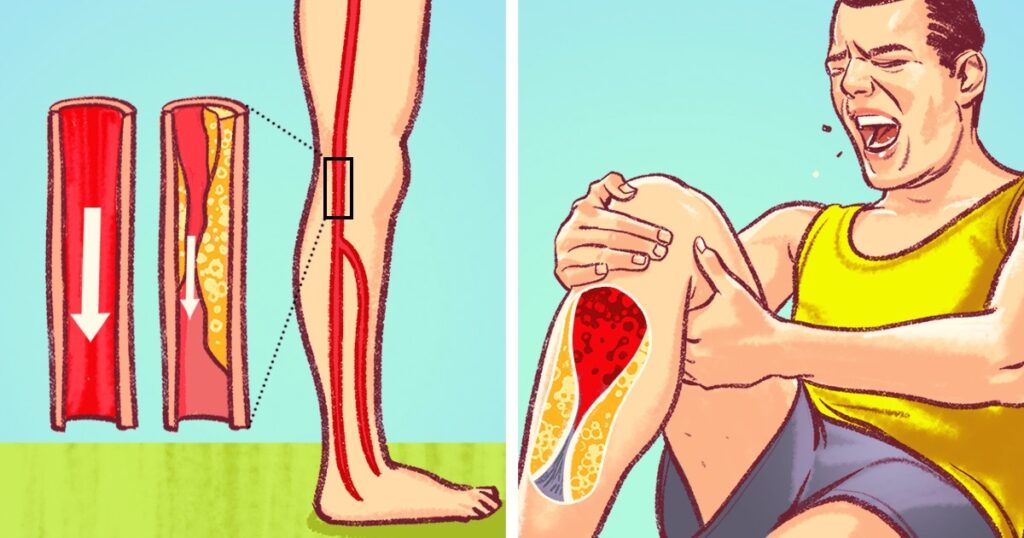
Blocked arteries occur when plaque buildup within the vessel walls narrows the passageway, which can reduce or stop blood flow. The condition can affect any part of your body, including the heart, brain, kidneys, legs, and arms.
The primary causes of blocked arteries include high blood pressure, high cholesterol, smoking, lack of physical activity, and an unhealthy diet. Certain medical conditions, such as diabetes, can also increase your risk of arterial blockages.
It is essential to recognize the signs and symptoms of blocked arteries to seek appropriate medical attention and prevent complications. Some of these signs may include:
- Chest pain or discomfort
- Shortness of breath
- Fatigue and weakness
- Increased heart rate
- Leg pain or numbness
- Dizziness or fainting spells
If you experience any of these signs, talk to your doctor to assess your risk of blocked arteries. Your doctor may recommend tests, such as a blood test, imaging, or electrocardiogram, to diagnose arterial blockages.
Understanding what blocked arteries are and what causes them is essential to take steps to prevent them. In section 10, we will discuss lifestyle changes and natural remedies that can help prevent blocked arteries and maintain heart health.
Chest Pain or Discomfort
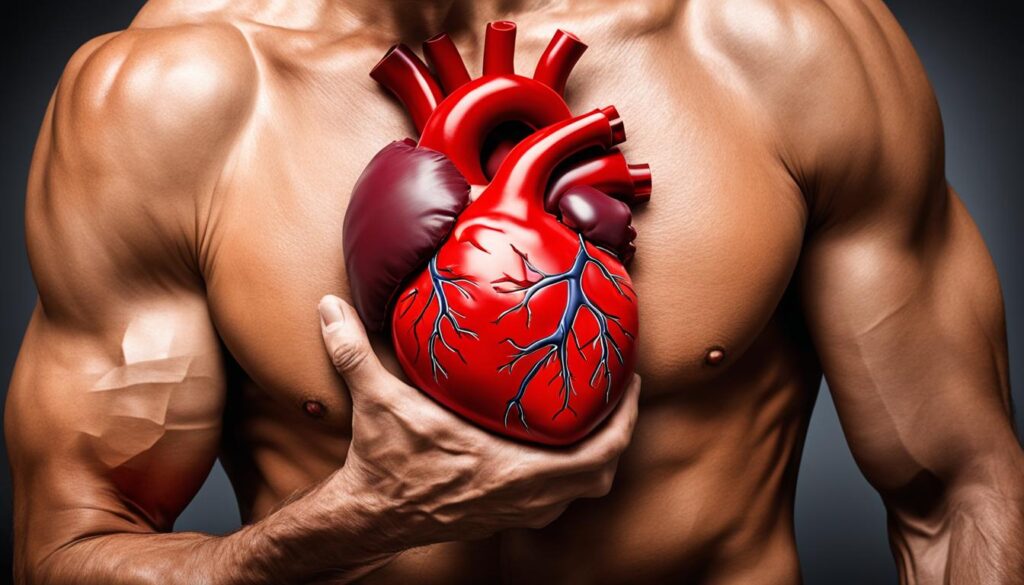
If you experience chest pain or discomfort, it may be a sign of blocked arteries in the heart. This symptom can range from mild discomfort to a crushing sensation that can be accompanied by sweating, nausea, or shortness of breath. The pain may also radiate to other parts of the upper body, such as the shoulder, arm, back, or jaw.
If you suspect you may have blocked arteries, it is important to speak with your doctor right away. Early detection and treatment can make a significant difference in managing the condition and reducing the risk of complications such as heart attack or stroke. Your doctor may recommend lifestyle changes, medication, or surgical procedures depending on the severity of the blockage.
Shortness of Breath
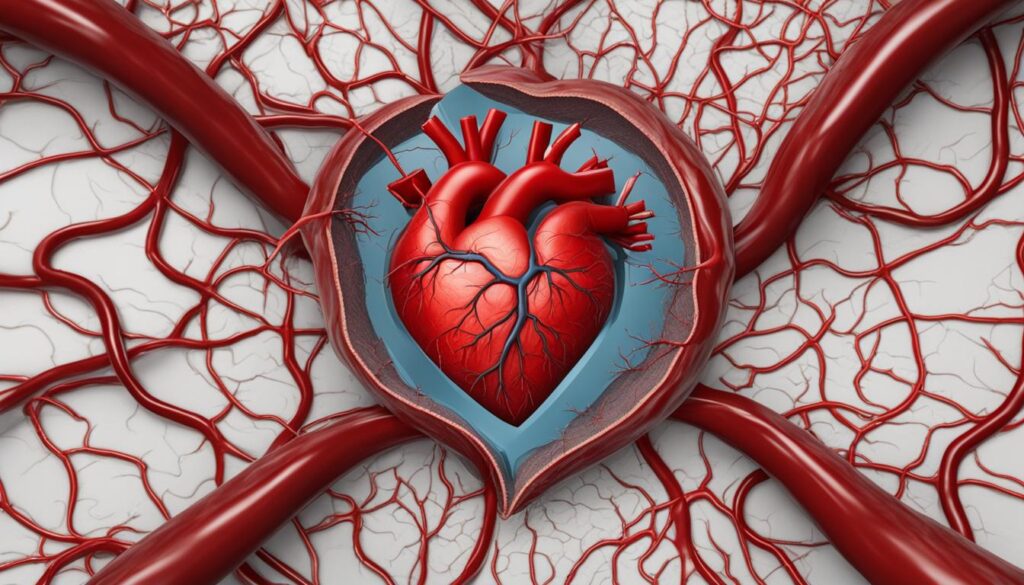
Shortness of breath can be a sign of blocked arteries, particularly if you experience it during physical activity. When your arteries become blocked, your heart must work harder to pump blood throughout your body, which can lead to shortness of breath. This symptom can also be accompanied by fatigue and weakness.
If you experience shortness of breath, it’s important to seek medical attention. Your doctor may recommend lifestyle changes, such as regular exercise, a healthy diet, and quitting smoking, to prevent further blockages. In some cases, medication or surgery may be necessary to improve blood flow and reduce the risk of complications from blocked arteries.
Fatigue and Weakness

When you think of signs of blocked arteries, you may not immediately consider fatigue and weakness. However, these symptoms can be indicative of arterial blockages in certain parts of the body. When your arteries are blocked, getting enough blood to your organs and muscles can become difficult, which can result in feelings of exhaustion and physical weakness.
If you experience fatigue and weakness that seems disproportionate to your level of activity, it is important to speak with your doctor. These symptoms can be significant warning signs of blocked arteries and may require medical intervention.
It is also important to note that fatigue and weakness can be caused by a variety of factors, such as poor nutrition, lack of sleep, and stress. However, if you have ruled out these potential causes and are still experiencing symptoms, it may be time to consider the possibility of blocked arteries.
Increased Heart Rate
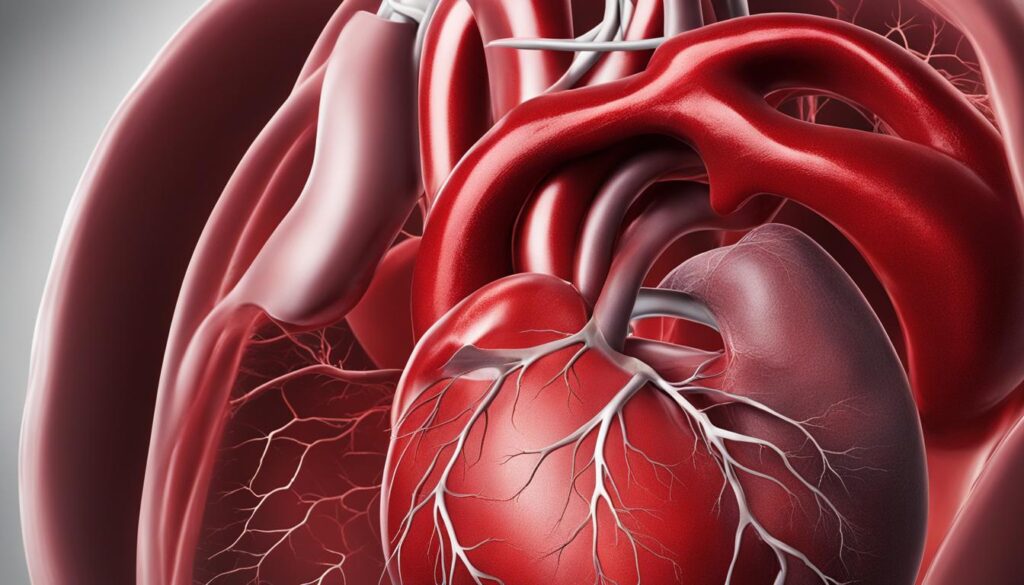
An increased heart rate is a possible symptom of blocked arteries. When the arteries become narrow or blocked, the heart has to work harder to pump blood through them. This increased exertion can cause your heart rate to rise.
If you notice your heart rate is consistently higher than normal, it’s essential to consult your doctor. They can evaluate whether this is a warning sign of blocked arteries or another underlying health condition. Your doctor may also recommend specific lifestyle changes or medical treatments to help manage your symptoms.
“If you experience an increased heart rate, don’t ignore it; work with your healthcare provider to determine the cause and identify appropriate treatment options.”
Leg Pain or Numbness

If you experience leg pain or numbness, it may be a sign of blocked arteries in your legs. Poor circulation caused by arterial blockages can lead to uncomfortable sensations and make it difficult to walk or stand for long periods.
Other symptoms that may indicate blocked arteries in your legs include:
- Cramping or tiredness in your legs, particularly during physical activity
- Coldness or numbness in your feet or toes
- Blue or pale skin on your legs
If you experience any of these symptoms, it is important to seek medical attention promptly. Early detection and treatment can help prevent complications and improve your quality of life.
Several risk factors increase the likelihood of developing blocked arteries in your legs, including:
- Smoking
- Diabetes
- High blood pressure
- High cholesterol
- Sedentary lifestyle
If you have any of these risk factors, talk to your healthcare provider about ways to reduce your risk and improve your overall health.
Dizziness or Fainting

Feeling dizzy or fainting can be a sign of blocked arteries, particularly in the brain. When blood supply is restricted, your brain may not receive enough oxygen, leading to these symptoms. If you experience dizziness or fainting, it’s important to seek medical attention as soon as possible.
Here are some precautions you can take:
- Avoid standing up too quickly
- Avoid driving or operating heavy machinery
- Take frequent breaks and rest when needed
If you have these symptoms, pay attention to other signs of blocked arteries and contact your doctor immediately. Early detection and treatment can prevent serious complications.
High Blood Pressure
High blood pressure, also known as hypertension, is both a cause and a consequence of blocked arteries. When your arteries are clogged, the heart has to work much harder to pump blood through the body, which can lead to high blood pressure over time.
The warning signs of clogged arteries, as discussed in earlier sections, can be an indication of existing hypertension. Therefore, monitoring your blood pressure is critical to maintaining heart health and detecting arterial blockages early on.
Measuring your blood pressure regularly and adopting healthy lifestyle habits can help prevent or manage hypertension. These habits include:
- Eating a balanced, low-sodium diet
- Reducing alcohol consumption
- Avoiding smoking
- Exercising regularly
If you have high blood pressure, your doctor may recommend medication to help manage it. It’s important to closely follow your doctor’s instructions and attend regular check-ups to monitor your heart health.
Lifestyle Changes for Preventing Blocked Arteries
To prevent blocked arteries, you can make some simple lifestyle changes. These changes include:
- Eating a healthy, balanced diet: Incorporate more fruits, vegetables, whole grains, and lean protein in your meals. Limit your intake of saturated and trans fats, cholesterol, and sodium.
- Exercising regularly: Aim for at least 30 minutes of physical activity per day, such as brisk walking, swimming, or cycling. Regular exercise can help lower blood pressure, reduce stress, and maintain a healthy weight.
- Quitting smoking: Smoking damages blood vessels and increases the risk of developing atherosclerosis, a condition where artery walls thicken and narrow. Quitting smoking reduces the risk of developing arterial blockages.
- Maintaining a healthy weight: Being overweight or obese can increase the risk of developing high blood pressure, diabetes, and other conditions that contribute to arterial blockages.
- Managing stress: Chronic stress can lead to high blood pressure and inflammation, both of which are risk factors for arterial blockages. Find healthy ways to manage stress, such as meditation, yoga, or deep breathing exercises.
Natural Remedies for Blocked Arteries
In addition to making lifestyle changes, some natural remedies may help prevent or reduce the risk of arterial blockages. These remedies include:
| Remedy | How it Works |
|---|---|
| Garlic | May help reduce cholesterol levels and prevent blood clots |
| Ginger | May help lower blood pressure, reduce inflammation, and prevent blood clots |
| Turmeric | May help reduce inflammation and prevent blood clots |
| Cayenne pepper | May help improve circulation and prevent blood clots |
| Omega-3 fatty acids | May help reduce inflammation, lower triglycerides, and prevent blood clots |
Remember, natural remedies should not replace medical treatment or advice. Talk to your doctor before using any natural remedies, especially if you are taking medication or have a medical condition.
Conclusion
Now that you know the warning signs of blocked arteries, it’s essential to take proactive measures to maintain heart health. Making lifestyle changes, such as adopting a healthy diet and regular exercise routine, can significantly decrease your risk of developing arterial blockages. Remember to monitor your blood pressure regularly and seek medical advice if you experience any of the symptoms mentioned in this article.
Early detection and prevention are critical in reducing the risk of complications associated with blocked arteries. By taking control of your heart health and prioritizing preventive measures, you can enjoy a healthy and fulfilling life. Stay informed and stay healthy.
FAQ
What are the warning signs of blocked arteries?
The warning signs of blocked arteries include chest pain or discomfort, shortness of breath, fatigue and weakness, increased heart rate, leg pain or numbness, dizziness or fainting, and high blood pressure.
What causes blocked arteries?
Blocked arteries are primarily caused by a buildup of plaque on the inner walls of the arteries, known as atherosclerosis. This buildup can be attributed to factors such as a high cholesterol diet, smoking, high blood pressure, and diabetes.
How do I know if I have blocked arteries in the heart?
Blocked arteries in the heart often manifest as chest pain or discomfort, which may radiate to the arms, shoulders, or jaw. This pain is known as angina and typically occurs during physical exertion or emotional stress.
What should I do if I experience shortness of breath?
If you experience persistent or sudden shortness of breath, it might be indicative of blocked arteries. It is essential to consult with a healthcare professional to determine the underlying cause and receive appropriate treatment.
Why do I feel fatigued and weak if I have blocked arteries?
Blocked arteries restrict blood flow, leading to reduced oxygen and nutrient supply to the muscles. This inadequate supply can result in fatigue and weakness, even with minimal physical exertion.
What is the connection between an increased heart rate and blocked arteries?
Blocked arteries can cause an increased heart rate as the heart works harder to pump blood through narrower passages. This increased workload can lead to a rapid heartbeat or palpitations.
Why does leg pain or numbness occur if I have blocked arteries in my legs?
Blocked arteries in the legs can cause poor circulation, resulting in leg pain or numbness, commonly known as peripheral artery disease (PAD). This symptom may be more pronounced during physical activity or while walking.
What should I do if I experience dizziness or fainting?
Dizziness or fainting can be an indication of blocked arteries. If you experience these symptoms, it is essential to seek medical attention to evaluate the underlying cause and receive appropriate treatment.
How is high blood pressure related to blocked arteries?
High blood pressure, or hypertension, can contribute to the development of blocked arteries. Additionally, blocked arteries can further elevate blood pressure, leading to a dangerous cycle. Regular monitoring and management of blood pressure are crucial for preventing complications.
What lifestyle changes can help prevent blocked arteries?
Adopting a healthy lifestyle can help prevent blocked arteries. This includes consuming a balanced diet, exercising regularly, maintaining a healthy weight, avoiding smoking, managing stress levels, and controlling conditions like diabetes and high blood pressure.

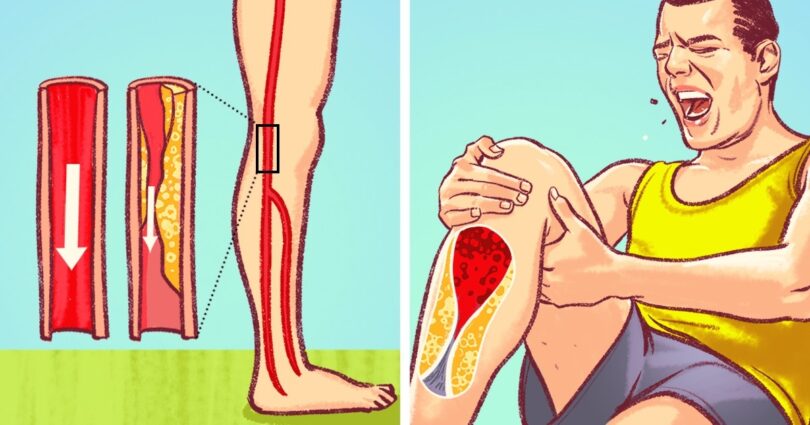
Leave a Comment